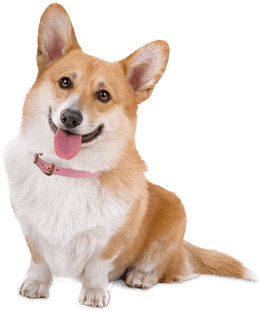Puppy house training is a necessary process that teaches your new furry friend to relieve themselves in a designated area and to refrain from doing so inside your home. This process is beneficial for maintaining a clean and sanitary living environment and helps establish a sense of structure and boundaries for your puppy, which can lead to a happier and more well-behaved pet in the long run.
At Way of a Dog [serving Clovis and surrounding communities], we understand the importance of puppy house training and offer various services to help you get started. Here’s what you can expect when you enroll your puppy in our house training program:
Benefits of Puppy House Training
There are many benefits to puppy house training, both for you and your pet. Some of the most significant benefits include:
A cleaner living environment: When your puppy is house-trained, you won’t have to worry about coming home to puddles or messes on your floors or carpets. This can help to keep your home more hygienic and pleasant to be in.
A stronger bond with your pet: The process of house training your puppy involves building a strong bond with your pet and establishing clear communication. This can lead to a deeper connection and stronger trust between you and your furry friend.
A happier and more well-behaved pet: When your puppy understands their boundaries and knows what is expected, they are more likely to be content and well-behaved. This can lead to a more harmonious and enjoyable home life for everyone.
How is Puppy House Training Done?
Puppy house training typically involves crate training, scheduling, and positive reinforcement — here’s a brief overview of how it works:
Crate training: Using a crate is a common and effective way to house-train your puppy. A crate provides your puppy with a safe and secure place to sleep and rest, and it can also help them learn to control their bladder and bowel movements. When you are home, you can keep your puppy in its crate when you can’t supervise them, and when you are away, you can use the crate to prevent home accidents.
Scheduling: One of the keys to successful house training is establishing a consistent routine for your puppy. This involves taking them outside to relieve themselves regularly throughout the day. As a general rule, puppies need to go out to pee every one to three hours, and they should be taken out after meals, waking up, and playtime.
Positive reinforcement: When your puppy goes to the bathroom in the designated area, it’s essential to reward them with praise, treats, and affection. This helps to reinforce the behavior you want to see and encourages your puppy to continue doing it.
What to Expect at the End of Training
The end goal of house training is for your puppy to be able to go to the bathroom outside on command and to refrain from doing so inside your home. This process can take anywhere from a few weeks to a few months, depending on your puppy and their level of development.
Here are some things you can expect by the end of the training:
Your puppy should be able to hold their bladder for extended periods, which means they will need to go outside to relieve themselves less frequently.
Your puppy should be able to go to the bathroom on command, which means you can take them out on a leash and signal to them when it’s time to go.
Your puppy should be able to signal to you when they need to go outside, which means you won’t have to rely on a strict schedule to prevent accidents. Your puppy may scratch at the door, whine, or use a designated bell to let you know when they need to go outside.
Your puppy should be able to sleep through the night without needing to go outside to relieve themselves.
It’s essential to keep in mind that even after your puppy is fully house-trained, there may still be occasional accidents. This is normal and can be caused by factors such as changes in routine, illness, or stress. The key is to remain patient and consistent and reinforce good behavior.
Why It’s Important to Start Training Early in the Dog’s Life
Puppies have a much easier time learning new habits and behaviors when they are young, so it’s important to start house training as soon as possible. The younger your puppy is, the more pliable its brain is, which means they are more receptive to learning and adapting to new routines.
Starting house training early can also help to prevent bad habits from forming. If your puppy learns to relieve themselves inside the house, it can be much harder to break this habit later on. Establishing clear boundaries and expectations can set your puppy up for success and make the house training process smoother and more efficient.
Puppy house training is a necessary process that teaches your new furry friend to relieve themselves in a designated area and to refrain from doing so inside your home. At Way of a Dog, we understand the importance of house training and offer various services to help you get started.
By starting early and using a combination of crate training, scheduling, and positive reinforcement, you can help your puppy learn the habits they need to be happy, well-behaved, and successful.
The Keys to Success: Time, Patience, and Consistency
It’s important to remember that house training a puppy takes time, patience, and consistency. New habits do not develop overnight. Give your puppy all the opportunities it needs to learn and succeed.
Here are a few concluding tips to help you succeed with puppy house training:
Be consistent: It’s crucial to establish a consistent routine and stick to it as closely as possible. This includes taking your puppy outside at the exact times each day and using the same commands and signals to let them know it’s time to go.
Use a designated area: Choose a specific spot for your puppy and take them there consistently. This helps establish the habit and makes it easier for your puppy to understand what you expect.
Supervise your puppy: When you are home, keep an eye on your puppy and take them outside frequently. This helps to prevent accidents and gives your puppy more chances to learn and succeed.
Consider a crate: Crates are valuable tools for house training, as it provides your puppy with a safe and secure place to sleep and rest and can also help them learn to control their bladder and bowel movements.
Reward good behavior: When your puppy behaves as expected, reward them with praise, treats, and affection. This helps to reinforce the behavior you want to see and encourages your puppy to continue doing it.
Be patient: If your puppy has an accident, don’t get angry or frustrated — clean it up and try again.
Following these tips can help your puppy succeed with house training and establish good habits that will last a lifetime.



